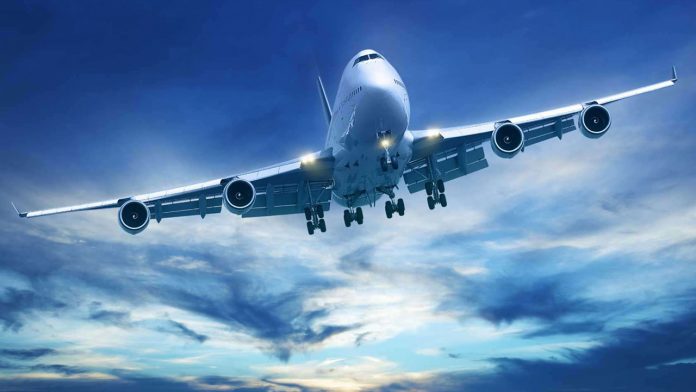Airline Operators of Nigeria (AON) have resolved to increase the cost of economy flight tickets to a minimum of N50, 000 nationwide. At a meeting held in Lagos which had most of the domestic operators present, the association cited the high cost of jet A1 fuel, forex scarcity, double digit inflation, increase in ground handling charges, cost of buying and importation of spare parts among others as reasons for the increase.
At the meeting, when the issue of increment was raised, most of the operators were in agreement that the benchmark for economy ticket should be pegged at N50, 000 to most routes but that Green Africa, whose business model is that of a low cost carrier was not in total support. Saturday Sun can also confirm that the increment has already taken effect as a visit to the website of many of the airlines show that economy tickets now sell for N50, 000. At the time of filing this report, economy tickets from Lagos to Abuja which used to cost between N29, 000 and N35, 000, now cost N50, 000. The websites of Dana Air, United Nigeria, Azman Air, Air Peace and Max Air show that economy tickets from Lagos to Abuja are from N50,000. Ibom Air sells for N53,00 and Aero Contractors which used to sell for N26,000 is now N48,365, while Arik Air is N48,500. However, Green Africa, which used to sell for N20, 000 is now selling at N39, 000, excluding the cost of baggage.
On Thursday, February 17, Air Peace, United Nigeria and Dana Air sold economy tickets to Owerri from Lagos for less than N30, 000 but at the time of filing this report, economy tickets to the same routes now sell for N50, 000.
At a recent meeting with aviation reporters in Lagos, the Chief Executive Officer of United Nigeria Airline hinted at the possibility of increasing flight tickets due to the high cost of operations. He said that a year ago, aviation fuel was sold at N190 per litre, but that the cost has risen to N400 per litre and that considering the fact that fuel takes up at least 30 per cent of operation cost, many airlines will struggle if there is no price adjustment.
“The least ticket we sold a year ago was N23, 000 when aviation fuel was N190 and the official rate of naira to a dollar then was N340, but today, if forex is available, it is N450 but when it is not available, the alternative market is N570 to a dollar. Despite this, you can still buy your ticket at N20, 000 to N21, 000 and what this means is that as long as all the airlines are buying from the same market and selling tickets at the current rates, any ticket that you buy is being subsidised by the airlines. Why did I say this? aviation fuel, depending on the aircraft type you are flying, could take up to about 30 to 40 per cent of your cost components.
“As you know, for every ticket you sell, you give five per cent of Ticket Sales Charge (TSC) to the Nigerian Civil Aviation Authority (NCAA), you have other deductions to the Nigerian Airspace Management Agency (NAMA), the Federal Airports Authority of Nigeria (FAAN) and to other airport owners. As a matter of fact, by the time you remove these deductions from the N20, 000 that you charge, you have to use your money to take care of other operational needs.
“In year 2000, you may have bought an air ticket at N2,000, which was about $100 then and 99 per cent of aviation component is foreign exchange denominated. From that N2, 000 up till now, the cost of aircraft has not reduced, salaries to staff have increased, the landing charges and other charges have increased, yet this item of ticket remains same. Safety is very critical in aviation business, but you cannot deal with safety in isolation of efficient operations. It must come with proper financing of your operations. The cost of tickets is very important, yet aviation is a chain and the airline operators are at the centre of the chain. However, there is need to establish a better customer service with operators,” Okonkwo said.
The Sun






